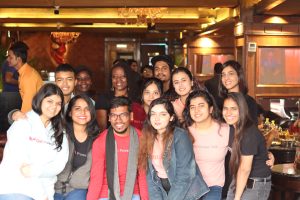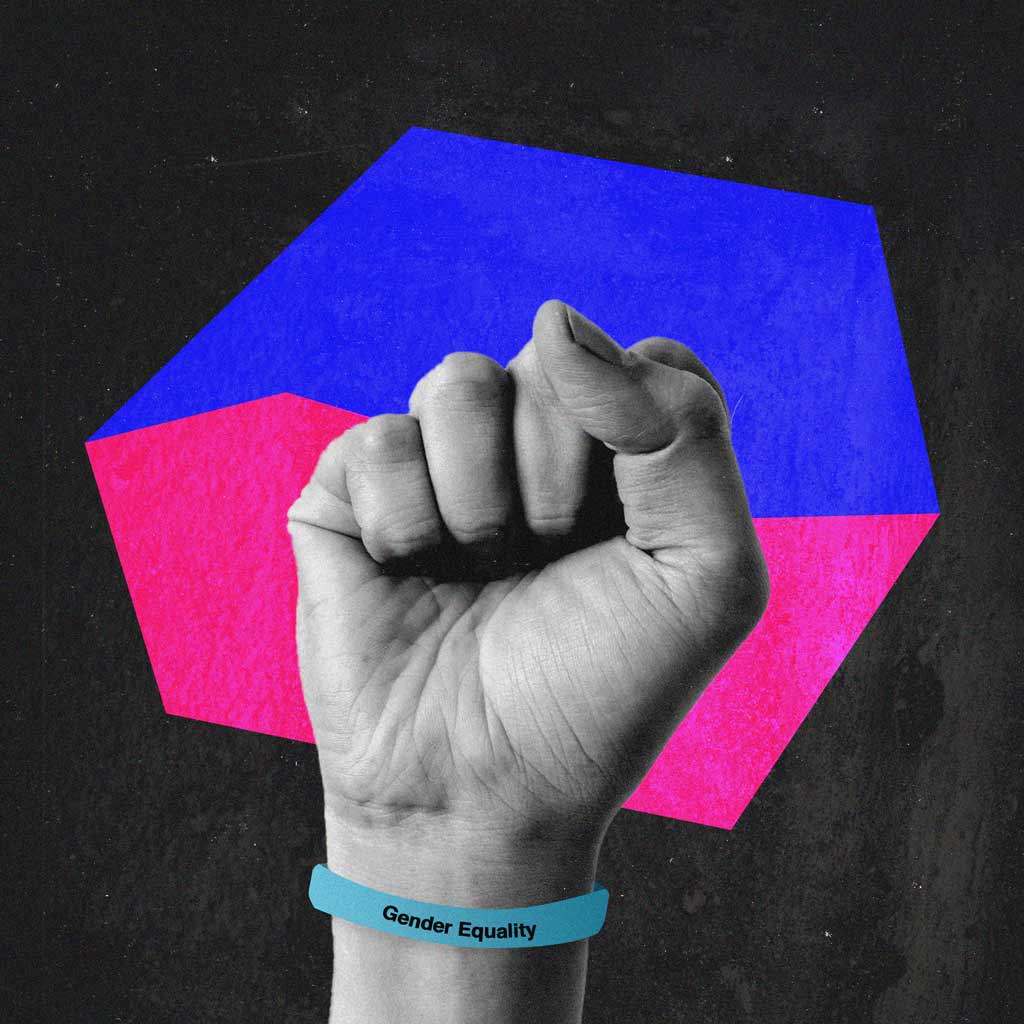Overview:
- Guaranteeing gender equality and inclusivity at the workplace is still a challenge for most companies, especially amid post-pandemic conditions.
- Women are suffering higher levels of stress, burnout, and microaggressions at work than in previous years.
- Promoting gender lens investing and inclusivity at the workplace is key to retaining female talent and increasing competitiveness.
- Companies can improve their gender equality levels by modeling the policies and strategies of organizations that have been successful in doing so.
Recent research shows that gender equality and inclusivity are priorities for women in the workplace. Flexible working hours, the potential to achieve work-life balance, parity in pay and decision-making, and the opportunity for professional growth are some of the factors women are considering when taking (or leaving) a job. Is the corporate world prepared to meet these expectations?

The Condition for Women in the Workplace
An international survey of 5,000 women in 10 countries performed by Deloitte (2022), a reputed name in the audit, consulting, financial risk, and assessment world, confirms what a great number of women already know: that most companies still have a long way to go to create a gender-equal and discrimination-free work environment. Some of the most concerning findings that Deloitte’s survey reveals are the following:
- Burnout is common among women. Almost one-half of working women (46%) are feeling burnout. 57% of individuals who take leave due to mental health challenges feel uncomfortable disclosing their situation to colleagues. Similarly, approximately one-half of the women who participated in the survey reported having problems “switching off” from work.
- Lack of advancement opportunities and overwork are major factors in women switching jobs. The number of women seeking new roles in different companies has risen since 2021 because of an increase in burnout. In fact, about 90% of the women in the survey plan to leave their employers within five years. The survey cites insufficient chances for career advancement, poor work-life balance, and inadequate pay as the primary reasons.
- Women are experiencing poor mental health. Stress levels and burnout are higher among women who changed or reduced their working hours during the pandemic. Up to 70% of female employees report feeling more stressed compared to 2021, and 65% (versus 22% in 2021) feel burned out. This trend is influenced by women’s increased household obligations, like looking after children or other dependents.
- Hybrid working is increasing the gender gap in most companies. Almost 60% of women in the Deloitte survey say they have been excluded from meetings, interactions, and decision-making in the workplace after it shifted to virtual. While 64% feel that their employer wasn’t clear about their expectations with respect to where and how employees should work. Therefore, most employers are not doing enough to guarantee an inclusive virtual work environment for their female employees.
- Women have been facing higher levels of harassment and/or microaggressions. What is still more concerning, the survey reveals that harassment and microaggressions have risen in the workplace since 2021. In 2022, 59% of surveyed women experienced exclusion. Discriminatory situations were more common among women in ethnic minorities and the LGBTQIA+ community. Situations such as not being included in informal interactions or having someone else take credit for their ideas.
The urgent need to globally promote gender equality in the workplace is crucial, as non-inclusive behaviors often go unreported. Women thrive at work when they feel safe, supported, and included, enabling them to contribute to their company’s success. But how can firms improve their gender equality levels? One option is to model the policies and strategies of successful organizations. These strategies may include creating safe spaces for women and integrating diversity and gender equity as core values.
The Other Side: Girl Power Talk
Girl Power Talk is one such organization that has found success with gender lens investing in women and has actually built diversity, inclusivity, and gender equity into its core framework. Founded in India, this growing organization with a global outlook (present in more than 22 countries) understands the obstacles young women in India and other parts of Asia and Africa face today. It addresses how patriarchy pervades all societal levels, assigning women the primary role of caregiver, regardless of education or interests. Girl Power Talk represents a radical shift in workplace mentoring for young women. The organization empowers all genders by offering opportunities to learn confidently, feel valued, and build a purposeful career.The organization’s vision is to create social impact that changes the way gender roles are commonly viewed. Girl Power Talk believes in women’s potential to succeed in leadership positions with access to the right opportunities and guidance.

The Foundations of Gender Equality at Girl Power Talk
Girl Power Talk’s core values revolve around providing underserved communities with professional opportunities and empowering their team members to become leaders and catalysts of change. It does so by consciously building a culture that respects and celebrates the following:
- Cultural Diversity: Having a global team with people from various cultures, socio-economic backgrounds, religions, and so on makes promoting an inclusive work environment necessary, one in which team members are defined by their respect for others and passion for learning. As Kat Gordon, founder of The 3% Movement, states, “Inclusivity means to have real intersectional diversity at the top levels of the organization, so the needs of all the people in the company are represented when decisions are made.” Having such diversity in team members from more than 22 different countries in 4 continents also provides the team with a competitive advantage. The possibility of flexible schedules for team members as well as 24/7 services to its clients adds to inclusivity.
- Youth Empowerment: Girl Power Talk’s mantra “Action today will create sustainable change tomorrow” underscores its commitment to nurturing young minds. Regardless of their age or level of traditional experience, the organization believes in the power of youth to revolutionize work culture and society as a whole. Girl Power Talk is investing in young people through mentorship, aspiring to help every Young Leader achieve their full potential. They are encouraged to work across departments and to proactively take leading roles on different projects. All the professional opportunities at Girl Power Talk are paid (including internships) to facilitate financial independence in addition to skill development.
The young generation today is aware, passionate about work, and determined to build a better world. They form the foundation of Girl Power Talk’s ambitious yet inclusive vision, nurtured by young minds’ ideas

- Social Impact: At Girl Power Talk, social impact is closely related to gender equality because the organization chooses projects through a gender lens—they have a conscious bias to empower and promote women leaders in all its initiatives. This is at the core of each project developed by Girl Power USA—a registered 501(c.)(3) NGO and the nonprofit arm of Girl Power Talk—which is currently creating an impact on the ground in India, Kenya, Nigeria, and Uganda. Girl Power USA is bridging the gap between those who want to create social change in privileged countries and the regions where opportunities are needed the most.
Giving back to their community is a driving force for every Girl Power Talk team member as the organization continues to revolutionize opportunities for youth in underprivileged communities. Their motto is to change lives, one person at a time. Its social projects are based on education, inclusivity, and gender equality. - Merit-Based Opportunities: With the aim of achieving an ideal and equal workplace, Girl Power Talk has built a true meritocracy. Each Young Leader knows that their age, experience, educational level, religion, class, caste, gender, or sexual orientation, or any other such marker, will not affect their growth within the organization. Team members at Girl Power Talk are nurtured through intellectual and creative freedom. Their individual efforts and dedication are the only metrics necessary to increase their growth opportunities. Girl Power Talk has created a culture of acknowledgment and recognition of commitment. This motivates people to give their best—and rewards them when they do.

- Emotional Intelligence: Switching off and taking a break can be challenging in a numbers-driven world, as Deloitte findings indicate.Yet kindness and communication can facilitate better mental health for team members, which in turn improves the quality of their work. The culture at Girl Power Talk is built on kindness, transparency, and understanding. Its flat organizational structure allows team members to easily communicate their problems, seek solutions and support from their mentors. The Girl Power Talk team is like a family, offering a warm and secure environment for all team members. Violence, discrimination, microaggressions, and gossip are not tolerated in any form.
- Female Leadership: Girl Power Talk has a conscious bias in hiring and empowering women. It recognizes that action needs to be taken to actively undo the years of women’s exclusion from the workplace. It is committed to closing the gender gap in male-dominated industries such as technology, finance, and in C-suites. This is actively practiced internally within Girl Power Talk’s teams and externally in the organization’s choice to work with female-led organizations and vendors and to spread information designed to combat biases against women. Girl Power Talk practices this internally with their teams and externally by partnering with female-led organizations and vendors. It also shares information to combat biases against women.
Although many of the statistics related to professional women are discouraging, organizations value diversity and appreciate women’s unique perspectives.
Girl Power Talk leads by example in how organizations that are conscious about inclusion and social impact can be profitable. Through purposeful actions, it is creating the kind of world we all want to live in. The team actively seeks collaborations with like-minded partners, organizations, and individuals to achieve their goal of genuine gender equality.
Conclusion:
The post-pandemic conditions have, in general, worsened the levels of gender equality and inclusivity at the workplace, which calls for urgent action in order to maintain female talent and prevent discrimination at work. Girl Power Talk, whose core values revolve around inclusivity, women empowerment, and promoting well-being, is an example of successfully bridging purpose and profit.


